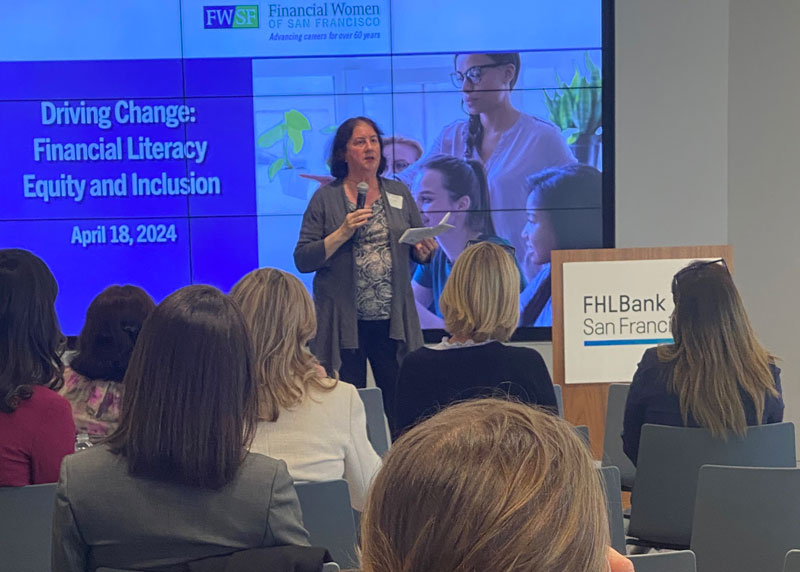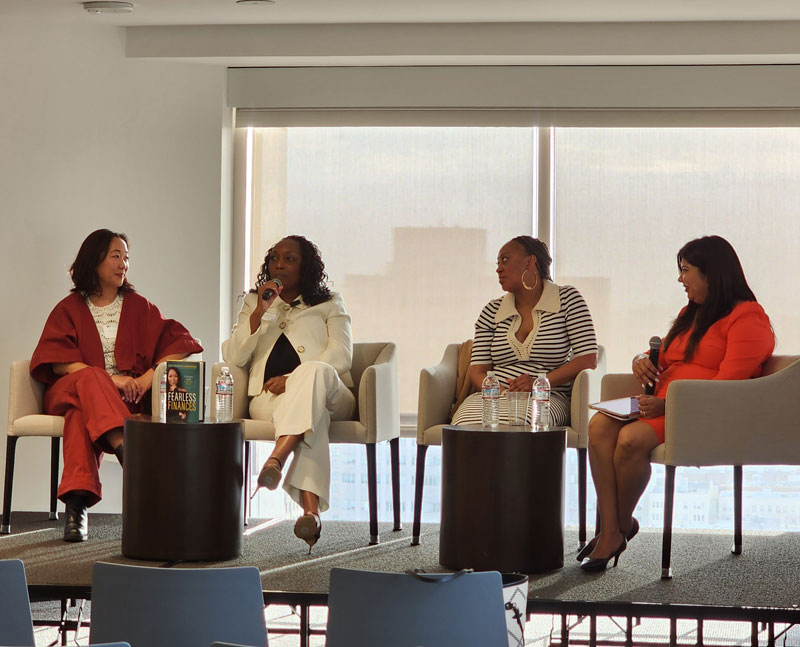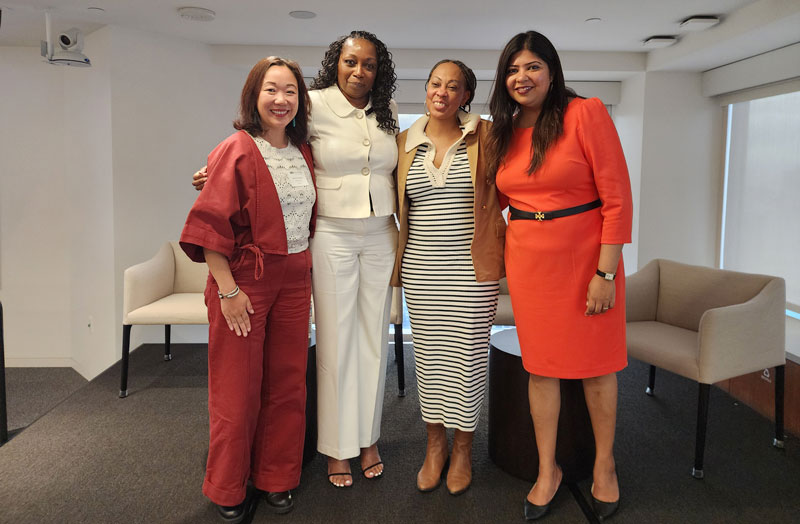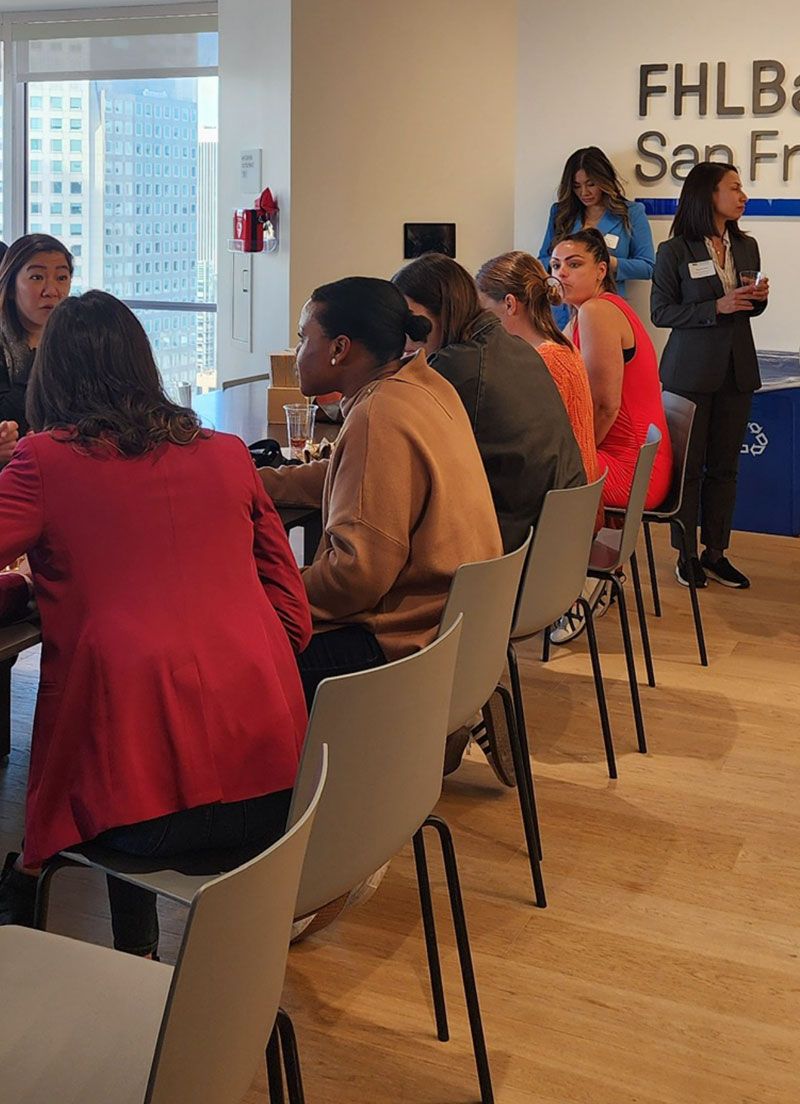
On the 18th of April 2024, the “Advancing Women into Financial Power,” event was held at FHL Bank in San Francisco. This Diversity, Equity, Inclusion, and Belonging event featured moderator Rekha Gurnani Chowdhury (HR, DEI&B, Pay Transparency & Pay Equity Expert and Wharton MBA), in conversation with panelists: Lisha Bell (Economic Opportunity Manager, Podcast Host, PayPal, and Co-Founder, BLXVC), Cassandra Cummings (Wealth & Investment Strategist, Digital Finance Influencer, Founder, Author, and Speaker) and Joann Lee Wagner (VP of People Operations, Common Future).

The conversation focused on discussions around both the life inequities that lead to lower overall income for women, in combination with the inequities that lead to lower rates of investment for women in their lifetime. There is an obvious inequity in access to financial literacy, financial inclusion, and access to financial resources for women. If we look deeper, these inequities widen amongst members of BIPOC communities. For example, based on the TIAA-Institute-GFLEC Personal Finance Index (P-Fin Index), financial literacy amongst women in the U.S. is approximately 49% and statistics for BIPOC communities indicate average literacy rates are at approximately 38%.
While women, especially younger generations are investing more, there’s still a lot that needs to be done to ensure women are not only treated fairly but that their differences are respected and valued as well. Women have three main factors that play against them which should cause them to save and invest differently than men for a lot of reasons. Longer life expectancy is a good reason. Increased longevity means women are more likely to need long-term care services as they age. Add in historically lower earnings which explains why women in some ways need to be more aggressive than men when planning for their financial security, especially when it comes to saving money as early as possible. It’s also important in the job search process to look at equitable HR practices, the remote work policy (as return-to-work has been damaging to women in particular), and beyond that an equity stake in the business. It is also important that women seek sponsorship from leaders who will use their influence to advocate for their advancement and help connect them to greater career opportunities, which in return helps with pay equity.
Research shows that women need to do a few things to ensure financial security. They should educate themselves beyond investment budgeting and other basic skills to get smarter about investing, for instance starting with micro-investments with low and no cost barriers to entry, investing in a 401k or 403B, and Roth IRA retirement. They should look into money mentors to discuss finances and help prioritize their investments. And foremost- they should stop working for free and start asking about pay compensation, pay increases, and pay parity.
In terms of closing the wealth gap, a great wealth transfer is expected to occur over the next two decades and will see more than $80 trillion changing hands between generations in the U.S. alone. And women are expected to receive a big share of the wealth transfer, in large part by inheriting money from male spouses who pass away on average years earlier. Millennial women are also set to inherit a fair share, as well.
There were so many rich takeaways from this amazing panel, and it was great to learn how women have altered the investing landscape in a big way over the past couple of decades. While women’s wealth is rapidly growing, so is their investing footprint and the “feminization of wealth” which is poised to reshape the world.


